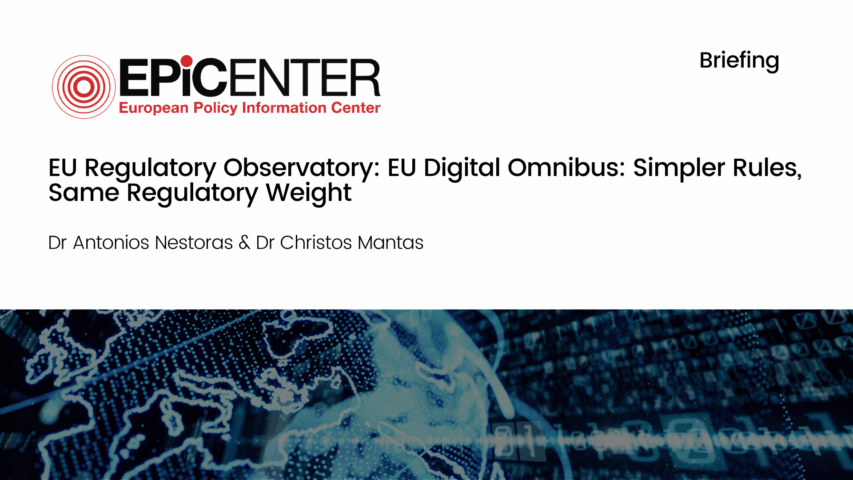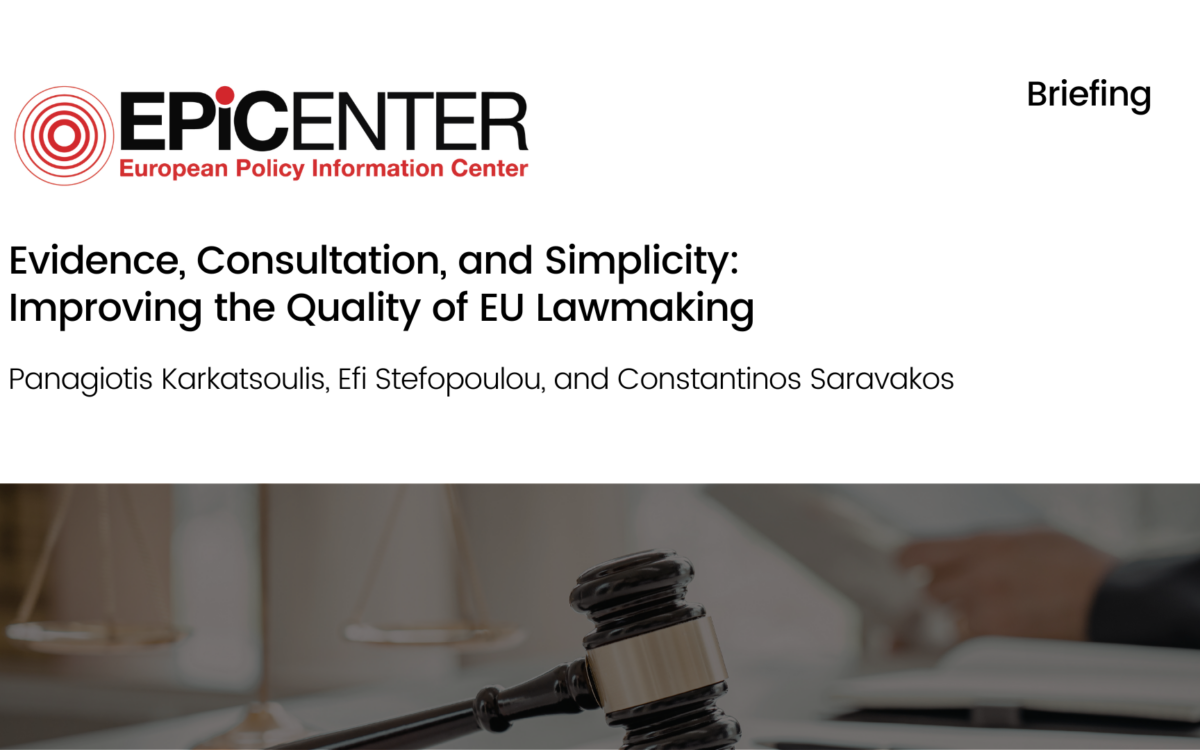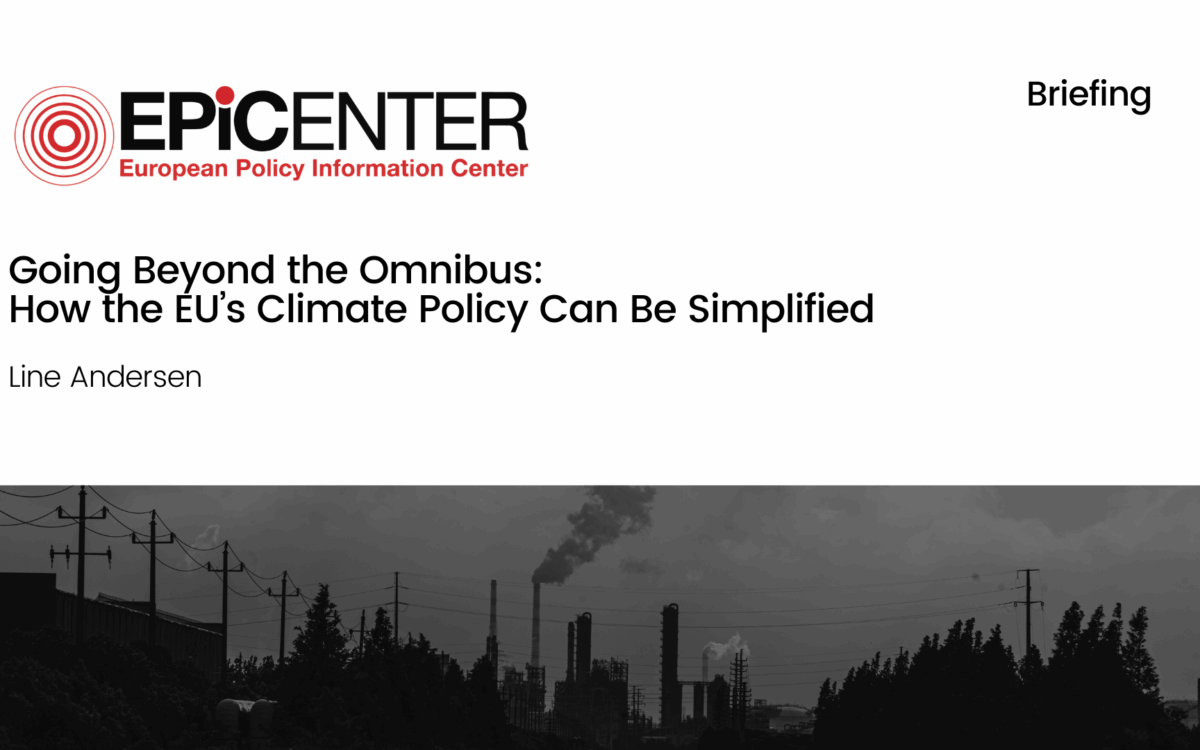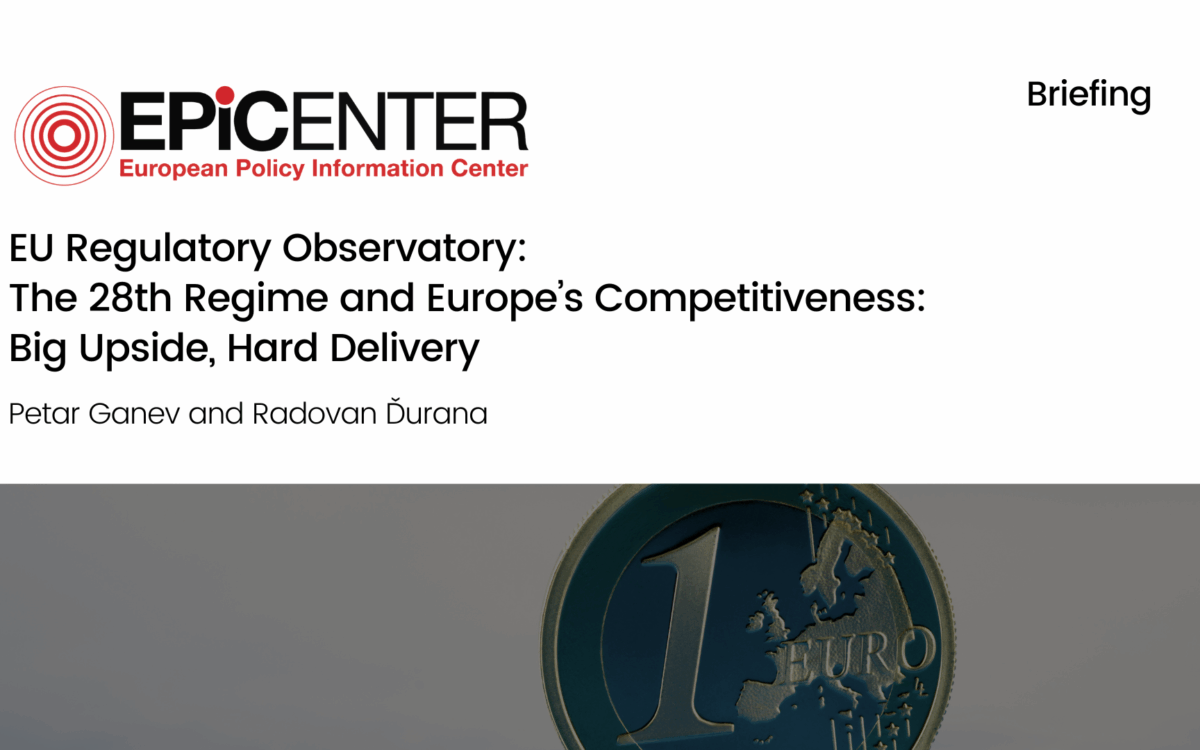EU Regulatory Observatory: EU Digital Omnibus: Simpler Rules, Same Regulatory Weight

EU Regulatory Observatory: EU Digital Omnibus: Simpler Rules, Same Regulatory Weight
Dr Antonios Nestoras & Dr Christos Mantas // 5 November 2025
The European Commission’s Digital Omnibus, part of its competitiveness and simplification agenda, streamlines overlapping rules on data, cybersecurity, and AI but does not reduce their overall burden. The Epicenter EU Regulatory Observatory briefing, EU Digital Omnibus: Simpler Rules, Same Regulatory Weight, finds the package earns a pro-liberal score of 6.55/10 (weighted 6.24/10), reflecting expert consensus that the Digital Omnibus reorganises rather than deregulates Europe’s digital framework.
Authored by Dr Antonios Nestoras, Founder and CEO of the European Policy Innovation Council, and Dr Christos Mantas, Researcher at the Center for Liberal Studies (KEFIM), the briefing evaluates the initiative’s impact on administrative efficiency, innovation, and individual autonomy.
While the package harmonises incident-reporting across NIS2, DORA, and CER, clarifies cookie consent, and refines the AI Act for smoother implementation, it leaves substantive obligations unchanged. Ultimately, the Omnibus is a procedurally liberal reset, clearer, more coherent, but substantively conservative. To enhance Europe’s digital edge, future reforms must shift from tidying rules to testing their necessity.
The main findings of the briefing include:
-
Streamlined reporting channels will cut duplication without weakening cybersecurity or data protection standards.
-
Harmonisation supports SMEs by reducing compliance fragmentation, yet fails to prune prescriptive requirements.
-
The European Digital Identity Wallet raises minority concerns over centralised control and privacy risks.
-
Real deregulation requires proportionality reviews, not merely procedural consolidation.
-
A linear approach to regulatory audits and digital sandboxes could unlock genuine competitiveness gains.
Download or share this publication
View the PDF
EPICENTER publications and contributions from our member think tanks are designed to promote the discussion of economic issues and the role of markets in solving economic and social problems. As with all EPICENTER publications, the views expressed here are those of the author and not EPICENTER or its member think tanks (which have no corporate view).



